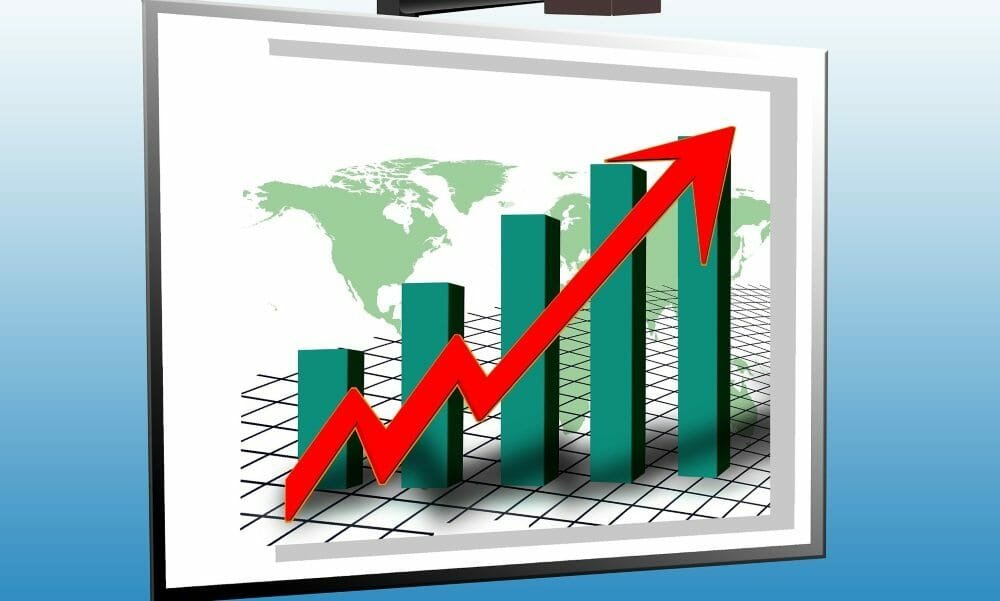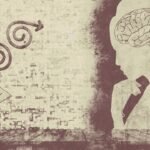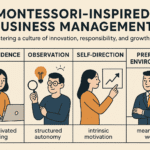
As we navigate through life, we constantly make decisions, both big and small.
Some decisions are simple, requiring little thought, while others are complex and require careful deliberation.
It is in these moments of deliberation that the power of analytical judgement comes to the fore.
What is Analytical Judgement?
Analytical judgement is the ability to evaluate complex information and situations, break them down into their components, and make decisions based on that evaluation.
This process involves logical reasoning, critical thinking, and evidence-based decision-making.
At its core, analytical judgement is a method of problem-solving that uses analysis rather than intuition or guesswork.
The Importance of Analytical Judgement
In an age of information overload, where data is readily available at our fingertips, the ability to separate valuable information from noise is crucial.
Analytical judgement allows us to do this effectively.
By enabling us to assess the quality, relevance, and validity of information, analytical judgement helps us make more informed and accurate decisions.
In the professional world, analytical judgement is invaluable.
Whether it’s in the fields of business, science, law, or education, professionals who can analyze data and information, see patterns and relationships, draw logical conclusions, and make informed decisions are highly sought after.
Components of Analytical Judgement
There are several key components that underpin analytical judgement:
- Logical Reasoning: This involves applying systematic steps based on the rules of logic to arrive at a conclusion. It’s the ability to identify patterns, make connections, and derive conclusions based on logic.
- Critical Thinking: This is the ability to objectively analyze and evaluate issues and information to form a judgement. It involves questioning assumptions, recognizing biases, and scrutinizing the validity of arguments.
- Objectivity: This refers to the ability to perceive and understand situations without being influenced by personal feelings or biases. Objectivity enables us to see things as they are, not as we wish them to be.
- Evidence-Based Decision Making: This involves making decisions based on hard evidence rather than assumptions or gut feelings. Evidence-based decision making requires gathering relevant data, evaluating the credibility of that data, and using it to inform decisions.
Developing Analytical Judgement
Enhancing analytical judgement involves deliberate practice of the key components.
Activities that involve problem-solving, logical reasoning, or critical thinking can help.
This might include solving puzzles, participating in debates, or analyzing case studies.
One crucial aspect is cultivating an open mind.
This means being willing to question assumptions, consider different perspectives, and accept that your initial judgement may be incorrect.
It also involves learning to recognize and mitigate the impact of cognitive biases on your judgement.
Analytical judgement is a powerful skill that can significantly enhance personal and professional decision-making.
It enables us to make rational, informed decisions based on thorough analysis and evaluation.
In a world awash with information, developing strong analytical judgement is more important than ever.
Through conscious effort and practice, we can enhance our analytical judgement and harness the power of rational decision-making.
The Pillars of Analytical Judgement
Analytical judgement, the process of breaking down complex information into manageable parts to make well-informed decisions, is integral in our daily lives.
It requires a set of specific skills that allow us to objectively assess a situation or problem, weigh different solutions or options, and reach a well-reasoned conclusion.
This article will delve into the four pillars that constitute the foundation of analytical judgement: logical reasoning, critical thinking, objectivity, and evidence-based decision making.
1. Logical Reasoning
Logical reasoning is the first pillar of analytical judgement. It refers to the ability to analyze a situation, problem, or set of data and logically deduce conclusions.
Logical reasoning can further be divided into deductive reasoning, where conclusions are drawn from given premises, and inductive reasoning, which involves making generalizations based on observed patterns.
To enhance your logical reasoning, engage in activities that challenge your mind to establish relationships, identify patterns, and deduce outcomes.
This could involve puzzles, strategic games, or studying logic as a discipline.
Developing logical reasoning skills can enhance your ability to make sound judgements and decisions based on clear, logical processes.
2. Critical Thinking
Critical thinking is an integral part of analytical judgement. It is the process of objectively evaluating an issue or information to form a judgement.
A critical thinker does not simply accept information at face value but scrutinizes it, questions its validity, identifies assumptions, and assesses the strength of the argument.
Promoting critical thinking involves cultivating an open and inquisitive mindset. Embrace skepticism and curiosity.
Ask questions, seek multiple perspectives, and be willing to revise your views when presented with compelling evidence.
Critical thinking is not about being argumentative, but about ensuring decisions and judgements are based on thorough and careful evaluation.
3. Objectivity
Objectivity is the ability to perceive and understand situations without letting personal feelings, prejudices, or biases interfere.
When making judgements, personal biases can cloud our perception and lead to faulty conclusions.
Objectivity requires us to distance ourselves from our emotions and preconceived notions to perceive situations as they are.
To develop objectivity, practice self-awareness. Be aware of your biases and how they may affect your judgement.
Engage in self-reflection, invite feedback from others, and strive to see things from multiple perspectives.
4. Evidence-Based Decision Making
The final pillar of analytical judgement is evidence-based decision making.
It requires making decisions based on empirical evidence and validated data rather than assumptions, intuition, or gut feelings.
In the context of analytical judgement, evidence-based decision making involves gathering relevant information, assessing its credibility, and using it to inform your decision-making process.
Foster evidence-based decision making by honing your research skills, learning to distinguish between credible and unreliable sources, and making decisions based on substantiated evidence.
In a world where misinformation is rampant, the ability to discern and rely on valid evidence has never been more critical.
The pillars of analytical judgement—logical reasoning, critical thinking, objectivity, and evidence-based decision making—are vital skills in today’s complex and rapidly evolving world.
They form the backbone of rational decision-making, guiding us to understand situations deeply, evaluate options thoroughly, and make well-informed decisions.
By understanding and strengthening these pillars, we can enhance our analytical judgement and navigate life’s challenges with greater wisdom and confidence.
Analytical Judgement in Daily Life: Unleashing the Power of Rational Decision-Making
Analytical judgement, a cornerstone skill in many professional fields, has equal relevance in our day-to-day lives.
While it’s essential in data analysis or strategic planning in a corporate setting, it’s also vital in decision-making processes we face every day, whether big or small.
This article explores the practical application of analytical judgement in everyday life.
Everyday Applications of Analytical Judgement
The power of analytical judgement is not confined to the office or the laboratory. Here are a few ways it plays a role in our daily lives:
1. Personal Finances
Managing personal finances requires constant decision-making.
From deciding how much to save each month, determining the best insurance policy, or investing in stocks, we use analytical judgement.
We gather and analyze information about various options, assess the risks and benefits, and make decisions that best align with our financial goals.
2. Health and Wellness
Analytical judgement is vital when making health-related decisions.
Choosing a diet plan, for instance, involves researching various diet plans, considering their pros and cons, and deciding which plan aligns with our nutritional needs, lifestyle, and health goals.
3. Planning and Organization
Whether planning a vacation, a weekly meal plan, or a home renovation project, we employ analytical judgement.
We gather information, evaluate options, consider various factors like cost, time, and resources, and make decisions that offer the best outcomes.
4. Problem-Solving
Life is full of unexpected challenges. From a sudden car breakdown to a complex disagreement with a friend, these issues require problem-solving—a prime application of analytical judgement.
We assess the problem, consider potential solutions, weigh their pros and cons, and choose the course of action that seems most effective and beneficial.
Analytical judgement is a potent tool in our daily lives, guiding us to make rational, informed decisions in various domains, from personal finances to health choices.
By developing and practicing the skill of analytical judgement, we can manage our daily lives more effectively and navigate life’s challenges with greater confidence and wisdom.
Analytical Judgement in the Professional Sphere: Elevating Decision-Making and Problem-Solving
In the modern professional world, where data is abundant and the rate of change is rapid, analytical judgement has become an increasingly valued skill.
It is the process of dissecting complex information, analyzing the separate components, and making informed decisions based on that analysis.
This article explores the importance and application of analytical judgement in the professional sphere.
Analytical Judgement in Various Professions
1. Business and Management
In business and management, professionals often face complex decisions that impact the entire organization.
They might need to decide on the viability of a new product, the best approach for market expansion, or how to allocate resources effectively.
Analytical judgement allows them to break down these complex problems, assess the potential outcomes of different decisions, and make choices that are most likely to benefit the company.
2. Healthcare
Healthcare professionals regularly use analytical judgement in diagnosis and treatment planning.
They gather and analyze a patient’s symptoms, medical history, and test results, then decide on the best treatment approach.
Analytical judgement is also critical in healthcare research, where it helps in the design of studies, interpretation of data, and formulation of health guidelines.
3. Engineering and Technology
In engineering and technology, professionals use analytical judgement to design, troubleshoot, and optimize systems and processes.
They analyze specifications, performance data, and technical challenges, then make decisions that lead to the best possible design or solution.
4. Education
Educators use analytical judgement to plan effective learning experiences and assess student progress.
They analyze educational theories, curriculum standards, student data, and feedback to make informed decisions about instruction and assessment strategies.
Enhancing Analytical Judgement in the Professional Sphere
To develop and enhance your analytical judgement skills in the professional setting, consider the following strategies:
1. Training and Education: Courses or workshops on critical thinking, logic, decision analysis, or related areas can help develop the key components of analytical judgement.
2. Practice: Seek opportunities to apply analytical judgement in your work. This could be in the form of problem-solving, strategic planning, or data analysis tasks.
3. Reflection: Reflect on your decision-making processes. Assess the quality of your judgements and consider how you might improve.
4. Feedback: Seek feedback from colleagues or mentors. They can provide valuable perspectives on your decision-making abilities and offer insights for improvement.
Analytical judgement is a critical skill in the professional sphere, driving effective decision-making and problem-solving across various industries.
By understanding its importance and actively working to enhance this skill, professionals can make more informed decisions, create more effective strategies, and contribute more meaningfully to their respective fields.
Analytical Judgement and Emotional Intelligence: A Confluence of Rationality and Empathy in Decision-Making
In the complex landscape of personal and professional decision-making, two vital skills stand out: analytical judgement and emotional intelligence.
Analytical judgement allows us to dissect problems logically, while emotional intelligence enables us to understand and manage emotions in ourselves and others.
This article explores how these two elements interact and contribute to effective decision-making.
Understanding Analytical Judgement and Emotional Intelligence
Analytical judgement refers to the ability to break down complex situations or problems, analyze the components, and make decisions based on this analysis.
It involves logical reasoning, critical thinking, objectivity, and evidence-based decision-making.
Emotional intelligence, on the other hand, is the ability to understand, manage, and use our emotions in positive ways.
It includes self-awareness (recognizing our own emotions), self-management (controlling our own emotions), social awareness (understanding others’ emotions), and relationship management (influencing the emotions of others).
Interplay of Analytical Judgement and Emotional Intelligence
1. Improved Decision-Making
Analytical judgement and emotional intelligence are both critical for decision-making but operate in different ways.
While analytical judgement helps us evaluate situations objectively, emotional intelligence allows us to understand the emotional aspects that can impact decision-making.
Combining these skills can lead to more balanced and effective decisions that take both logical and emotional considerations into account.
2. Enhanced Problem-Solving
Problems often have both rational and emotional components.
For instance, resolving a dispute between team members requires understanding the facts (analytical judgement) and the emotions involved (emotional intelligence).
By using both skills, one can find solutions that address the root cause and consider the emotional impact.
3. Effective Communication
Communicating effectively, particularly in challenging situations, often requires a mix of analytical judgement and emotional intelligence.
Analytical judgement can help in structuring messages logically and clearly, while emotional intelligence can guide the tone and delivery to be empathetic and emotionally appropriate.
4. Leadership and Teamwork
Leaders and team members who can combine analytical judgement with emotional intelligence are often more effective.
They can make rational decisions and strategies (analytical judgement), while also understanding and managing the emotional dynamics within the team (emotional intelligence).
Developing Analytical Judgement and Emotional Intelligence
Developing these skills involves deliberate practice and a willingness to learn and grow:
1. Training and Education: Attend workshops, courses, or seminars focused on critical thinking, emotional intelligence, communication, leadership, and related areas.
2. Self-Reflection: Regularly reflect on your experiences. Assess how you react in different situations, identify areas for improvement, and make conscious efforts to improve.
3. Seek Feedback: Request feedback from colleagues, friends, or mentors. Others can provide valuable insights into your strengths and areas for development.
4. Practice: Look for opportunities to practice both skills. This might be through problem-solving tasks, leadership roles, or emotionally challenging situations.
Analytical judgement and emotional intelligence, while distinct, can complement each other in powerful ways.
By developing both skills, we can enhance our decision-making, problem-solving, communication, and leadership abilities.
Ultimately, it’s the confluence of rationality and empathy that leads to well-rounded and effective decisions in both personal and professional life.
The Future of Analytical Judgement: Navigating an Increasingly Complex World
In a rapidly evolving world, the ability to analyze information and make reasoned decisions—analytical judgement—is becoming ever more crucial.
As we move into the future, with emerging technologies and changing societal landscapes, analytical judgement’s role is set to expand and evolve.
This article explores the prospective shifts and trends that could shape the future of analytical judgement.
Growing Complexity and Interconnectedness
The world is becoming increasingly complex and interconnected.
We now face problems that span across disciplines, borders, and sectors, often referred to as ‘wicked problems.’
These include climate change, global health issues, and technological disruption.
Solving these problems requires the ability to analyze vast amounts of diverse information, discern patterns, and make informed judgements.
As such, analytical judgement will become more critical in navigating this complexity.
Technological Innovation and Data Proliferation
The growth of technology is leading to an explosion of data. From social media feeds to scientific databases, we have access to more information than ever before.
However, this data is only valuable if we can analyze it effectively to inform decisions.
Therefore, the demand for strong analytical judgement, particularly the ability to extract meaningful insights from large data sets, is set to increase.
Artificial Intelligence and Machine Learning
Artificial intelligence (AI) and machine learning (ML) are becoming increasingly sophisticated, able to analyze data and make decisions at scales and speeds beyond human capabilities.
Yet, humans’ role in analytical judgement remains crucial. Humans provide the ethical, creative, and contextual dimensions that AI currently cannot replicate.
Future analytical judgement will likely involve a partnership between human judgement and AI analysis, with humans guiding, interpreting, and contextualizing AI’s work.
Increasing Uncertainty
The future is inherently uncertain, and the pace of change is accelerating.
This uncertainty makes predictive analysis more challenging and increases the need for strong analytical judgement.
In the future, analytical judgement may involve not just analyzing data from the past and present, but also considering various potential futures.
Scenario analysis and strategic foresight methods may become more prominent parts of the analytical judgement toolbox.
Skills for the Future of Analytical Judgement
As we look towards the future of analytical judgement, several skills stand out:
- Data literacy: The ability to understand, interpret, and critically evaluate data will become even more crucial as data proliferation continues.
- Technological fluency: Understanding the capabilities and limitations of AI and ML, and the ability to work effectively alongside these technologies will be increasingly important.
- Systems thinking: As problems become more complex and interconnected, the ability to understand systems and their dynamics will be vital in analytical judgement.
- Agility and adaptability: With rapid and unpredictable change, the ability to adapt one’s analytical approach and continuously learn will be critical.
Conclusion
The future of analytical judgement will be shaped by increasing complexity, data proliferation, advancements in AI and ML, and growing uncertainty.
As we navigate this future, developing skills such as data literacy, technological fluency, systems thinking, and adaptability will be key.
The journey ahead is both a challenge and an opportunity, an invitation to deepen our understanding and expand our capabilities in analytical judgement.
















